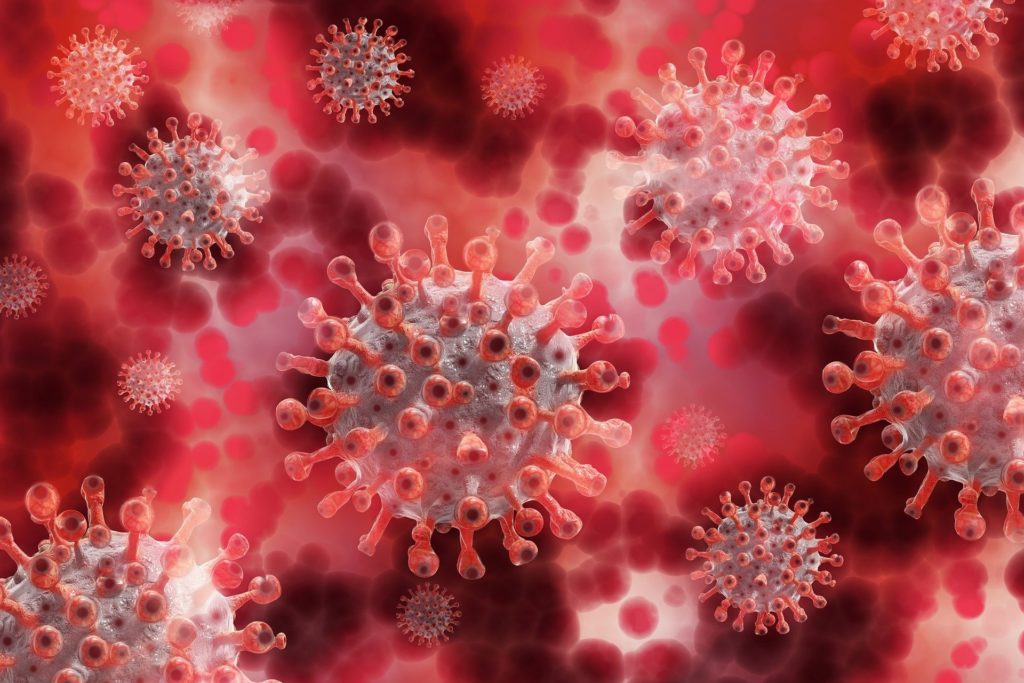
Contributor: Staff at Timberline Knolls Residential Treatment Center
What was once a glass of wine or a cocktail to unwind became something different during the COVID-19 pandemic. Alcohol sales boomed during the past 18 months as Americans’ appetite for imbibing grew amid a period of frequent isolation and uncertainty.
An International Journal of Environmental Research and Public Health survey found that 60% of respondents were drinking more compared with before COVID-19 [1]. A study published in September 2020 found that during one three-week stretch early in the pandemic, the frequency of alcohol consumption increased by 14% among U.S. adults compared with a baseline period from the previous year [2].
Treatment Facilities and COVID-19
At many addiction treatment facilities, there’s not enough room to provide care for the record number of individuals who are seeking help.
“The increased isolation and other factors creating anxiety during the pandemic has been a major factor in our increase in admissions related to alcohol abuse,” says Diane Carugati, CEO of Timberline Knolls, a residential eating disorder and addiction treatment center just outside of Chicago. “It’s also made us aware, as an industry, that we need more specialized treatment options available for women.”
Call Timberline Knolls for Help 855-630-2865
Women have been the most notably recurrent consumers as a result of the pandemic — both in terms of frequency (17%, compared with 11% of men) and days of heavy drinking (a startling 41%, compared with 7% among men). The memes of moms kicking back with an oversized glass of cabernet after a long day may be a bit dramatic, but there are some legitimate big-picture concerns.
Data aside, though, there’s one big question at play here — why?
The pandemic has been disproportionately hard for women across the board. They have experienced higher rates of pandemic-related shifts in productivity, sleep, mood, health-related concerns, and frustrations with not being able to participate in enjoyable activities [3].
Digging deeper, the intersection of complicated careers and the sudden upheaval of “normalcy” have had much to do with the recent rise in alcohol consumption among the female population. Women make up an estimated 70% of the world’s global health workforce, meaning that many have been directly in harm’s way as they try to treat COVID-19 patients. Women are also more likely to hold vulnerable careers, so many of them may have experienced a job loss as a result of the pandemic.
COVID-19 and Women
Plenty of women who already shouldered the majority of their household tasks have had to play an even greater role in keeping their families’ lives running. For some, that has meant juggling multiple Zoom schooling sessions for their children amid their own attempts to work from home. For others, it has involved the stress of looking after an older parent who may not be able to grocery shop or attend appointments without help.
 Previous tragic events, such as 9/11 or Hurricane Katrina, were also linked to increases in alcohol consumption and abuse among those who experienced them. But not everyone felt a personal connection with those tragedies, and outside of increased security during trips to the airport, neither had the truly nationwide ramifications of a pandemic.
Previous tragic events, such as 9/11 or Hurricane Katrina, were also linked to increases in alcohol consumption and abuse among those who experienced them. But not everyone felt a personal connection with those tragedies, and outside of increased security during trips to the airport, neither had the truly nationwide ramifications of a pandemic.
The fallout from the patterns of heavier drinking we’ve seen during the past 18 months likely won’t be clear for a while. Researchers started seeing the impact of increases in alcohol use one to three years following those other catastrophes.
One already notable jump can’t be pinned solely on the pandemic, but it is troubling nonetheless. Cases of alcoholic liver disease are up 30% over the last year at the University of Michigan’s health systems, and many of those patients have been young women. Liver diseases still affect more men overall, but younger women began driving the increase in deaths several years ago — a trend the pandemic has exacerbated [4].
There is a bidirectional relationship between alcohol use and mental health symptoms. Simply put, if you have previously struggled with addiction, you have an increased risk of developing a psychiatric disorder. If you have been diagnosed with a mental health concern in the past, you have a greater chance of struggling with substance use.
Combine the additional stress of an overload of responsibilities and uncertainty during the pandemic with excessive alcohol use, and women are at risk for developing co-occurring disorders — the simultaneous presence of both a mental health concern and a substance use disorder. For those who are already overwhelmed by trying to get through their day-to-day, treatment might be the last thing on their mind.
It shouldn’t be. But we can start by ending the normalization of trends like Mommy Wine Culture [5]. We need to make clear how much is too much because too many people simply don’t know [6]. As health professionals, we need to offer more comprehensive screening to assess people’s drinking patterns.
Perhaps most importantly, we need to destigmatize what it means to get treatment for alcohol abuse, a mental health concern, or anything else.
The pandemic has forced us all to make difficult choices. Helping yourself shouldn’t be one of them.
References:
[1] Grossman, E., Benjamin-Neelon, S., & Sonnenschein, S. (2020, Dec. 9). Alcohol consumption during the COVID-19 pandemic: A cross-sectional survey of U.S. adults. J. Environ. Res. Public Health 2020, 17(24), 9189. https://doi.org/10.3390/ijerph17249189.
[2] Rodriguez, T. (2021, July 29). COVID-19’s continuing toll: Increasing alcohol use and liver disease disproportionately affect women. Psychiatry Advisor. https://www.psychiatryadvisor.com/home/topics/addiction/alcohol-related-disorders/covid-19-pandemic-disproportionate-affect-on-women-led-to-increased-alcohol-use/.
[3] Palsson, O., Ballou, S., & Gray, S. (2020, June). The U.S. national pandemic emotional impact report. The University of North Carolina School of Medicine and Harvard Medical School. https://www.pandemicimpactreport.com/report/PalssonBallouGray_2020_PandemicImpactReport.pdf.
[4] Tapper, E. & Parikh, N. (2018, July 18). Mortality due to cirrhosis and liver cancer in the United States, 1999-2016: observational study. BMJ 2018, 362k2817. https://doi.org/10.1136/bmj.k2817.
[5] Johnson, A. (2019, Nov. 26). It’s not all punny t-shirts and fancy brunches: Mommy wine culture has crossed a line. USA Today. https://www.usatoday.com/story/opinion/2019/11/26/punny-shirts-fancy-brunches-mommy-wine-culture-crossed-line-column/2579218001/.
[6] Rethinking drinking: Alcohol & your health. (n.d.). National Institute on Alcohol Abuse and Alcoholism. https://www.rethinkingdrinking.niaaa.nih.gov/How-much-is-too-much/Is-your-drinking-pattern-risky/Drinking-Levels.aspx.
About Our Sponsor:
 At Timberline Knolls Residential Treatment Center, located outside of Chicago, Illinois, we provide specialized care for women and girls who are living with mental health conditions such as substance use disorders and eating disorders. Our private facility offers female-only treatment programs for eating disorders, addiction, and a range of mental health conditions. We work closely with each person to develop treatment goals to maximize strengths while focusing on individual needs. Our treatment team understands that each woman has unique needs and that she must play a role in her journey to wellness.
At Timberline Knolls Residential Treatment Center, located outside of Chicago, Illinois, we provide specialized care for women and girls who are living with mental health conditions such as substance use disorders and eating disorders. Our private facility offers female-only treatment programs for eating disorders, addiction, and a range of mental health conditions. We work closely with each person to develop treatment goals to maximize strengths while focusing on individual needs. Our treatment team understands that each woman has unique needs and that she must play a role in her journey to wellness.
The opinions and views of our guest contributors are shared to provide a broad perspective of addictions. These are not necessarily the views of Addiction Hope, but an effort to offer a discussion of various issues by different concerned individuals.
We at Addiction Hope understand that addictions result from multiple physical, emotional, environmental, and genetic factors. If you or a loved one are suffering from an addiction, please know that there is hope for you, and seek immediate professional help.
Published on November 10, 2021
Reviewed by Jacquelyn Ekern, MS, LPC on November 10, 2021
Published on AddictionHope.com

